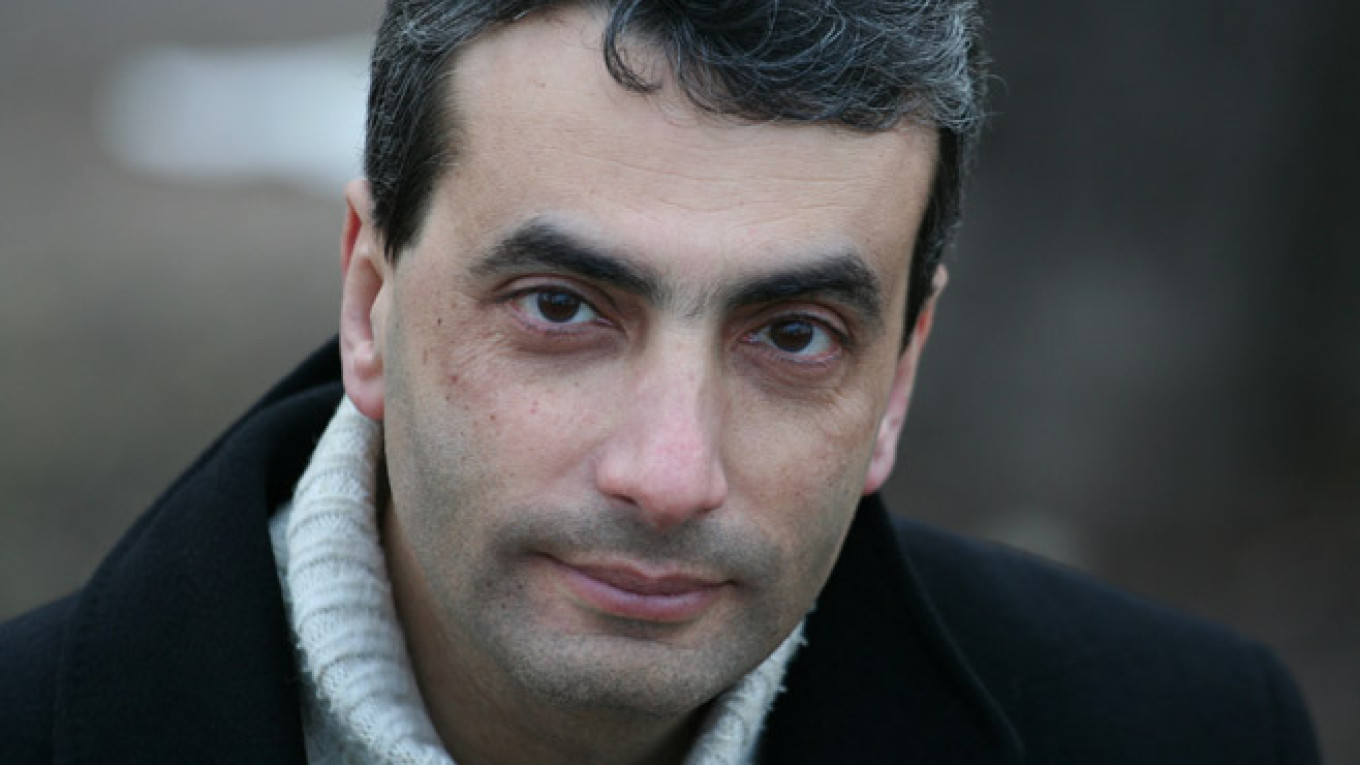A Pskov region lawmaker was found stumbling through the streets covered in blood on Friday, after having called attention to reports that local paratroopers may have been deployed to war-torn Ukraine.
Lev Shlosberg sustained temporary amnesia, head injuries, a broken nose and numerous bruises, Igor Yakovlev, an associate in the social-democratic party Yabloko, said on his Facebook page Saturday.
The lawmaker eventually recovered enough to claim he had been attacked from behind by three thugs who beat him unconscious, Yabloko head Sergei Mitrokhin said.
"The [rascals] tracked Shlosberg to his house, assaulted [him] without a word … beat him up for several minutes and only fled when witnesses appeared," Mitrokhin said on Yabloko's website.
Local police launched a case based on charges of "hooliganism resulting in minor bodily harm," which carries a maximum sentence of two years in prison.
Mitrokhin's call to append the case to include the more serious charge of "attack on a state or public figure," which carries up to a life sentence, had gone unheeded as of Sunday.
Pskov authorities assigned hospital guards to Shlosberg, who is well known in Russia for his crisp and balanced criticism of Kremlin policies.
Shlosberg, 51, spearheaded an investigation into the troops from the elite Pskov-based 76th Airborne Division who were buried in the region earlier this month under mysterious circumstances amid persistent rumors that they died in Ukrainian infighting.
The lawmaker, who directly linked the attack to the investigation in a brief interview with Flashnord.ru on Saturday, is not the first person who was allegedly attacked after looking into the paratroopers' fate.
Reporters with independent media outlets Dozhd and Fontanka claim to have been assaulted by unidentified thugs in the Pskov cemetery last week while looking for the paratroopers' graves. They drove away, allegedly before any serious harm could be inflicted.
Official Kiev, NATO, the EU and the U.S. all claimed last week, with varying degrees of certainty, that Russia had sent its troops to aid the pro-Russian insurgency in eastern Ukraine.
The insurgents have launched a surprising counteroffensive in recent days after appearing to have teetered on the brink of defeat for weeks.
Ukrainian officials blamed the separatists' victories on an influx of heavy military equipment from Russia, complete with troops to operate them.
A senior NATO official estimated on Thursday that Russia had deployed about 1,000 soldiers. Russian NGO Soldiers' Mothers Committee estimated that there had been about 400 Russian military casualties in Ukraine, and Shlosberg claimed on Ekho Moskvy radio hours before the attack on him that the 76th Airborne alone had lost at least 100 troops in Ukraine so far.
President Vladimir Putin denied that Russia had provided any military help to the rebels, and so did the Defense Ministry, which said the allegations "aren't even funny anymore."
Putin, however, called in an interview aired by Channel One television on Sunday to end hostilities and begin talks on "eastern Ukraine's statehood."
The call echoes the pro-separatist sentiment promoted by Channel One and other pro-Kremlin state media since the civil war's outbreak last spring. Official Kiev has so far been refusing to discuss the "statehood" of the breakaway eastern provinces.
Contact the author at a.eremenko@imedia.ru
A Message from The Moscow Times:
Dear readers,
We are facing unprecedented challenges. Russia's Prosecutor General's Office has designated The Moscow Times as an "undesirable" organization, criminalizing our work and putting our staff at risk of prosecution. This follows our earlier unjust labeling as a "foreign agent."
These actions are direct attempts to silence independent journalism in Russia. The authorities claim our work "discredits the decisions of the Russian leadership." We see things differently: we strive to provide accurate, unbiased reporting on Russia.
We, the journalists of The Moscow Times, refuse to be silenced. But to continue our work, we need your help.
Your support, no matter how small, makes a world of difference. If you can, please support us monthly starting from just $2. It's quick to set up, and every contribution makes a significant impact.
By supporting The Moscow Times, you're defending open, independent journalism in the face of repression. Thank you for standing with us.
Remind me later.


